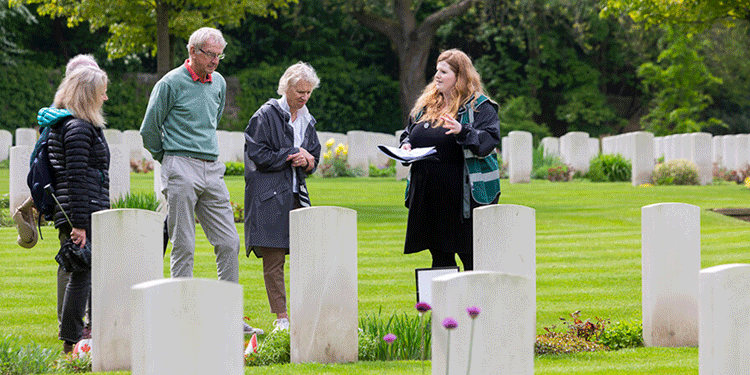
James Hudson was born in Hapton, Burnley on 8th January 1894 and baptised in the Parish of Padiham on 7th February 1894. His father was John Hudson (b. 1865, d. 1900) and his mother was Ann Hudson (nee Hope b. 1869 in Padiham, d. 1944). He had three brothers and two sisters.
In the 1891 census the family was living at 5, Norton Street Hapton but ten years later they had moved to 27, Church Street, Hapton. They were at the same address in the 1911 census and James is employed as a cotton weaver.
The Burnley Express for 1st March 1916 reported that James Hudson was now in charge of the Hapton Troop as Scoutmaster.
James enlisted on 14th April.
The Burnley News for 11th November 1916 reported that Private John Hudson [his elder brother] had been wounded in action but the nature of the injuries was not known. It was subsequently reported that Private John Hudson’s wound was so severe he had to have his right leg amputated.
The same article also stated that Private James Hudson was in hospital in Cambridge.
The third brother, Albert, 1/5th East Lancashire Regiment, was with the Mediterranean Expeditionary Force. Albert was wounded in the hip by shrapnel on 3rd July 1917 and wrote to his family from 41st Stationary Hospital, B.E.F.



It is not known when James went to the Western Front. The 8th Battalion King's Own (Royal Lancaster Regiment) was formed in Lancaster in October 1914 and after training landed in France on the 26th and 27th of September 1915 with 859 officers and men. They formed one of the four infantry battalions in 76 Brigade which was under the command of firstly the 25th Division and a year later in October 1915, the 3rd Division.
They were in the front lines from the start with regular low-level casualties between large offensive or defensive operations.
The War Diary records that on the night of the 24th April 1917 the Battalion began to take up positions in the front-line East of Monchy. It was a difficult handover as they were under regular enemy fire. Communication between the Companies and with Brigade H.Q. was extremely difficult due to shell and machine gun fire. By the morning all four Rifle Companies were in the front line.
On the evening of the 26th the enemy attacked. It was ‘C’ Company that bore the brunt of the infantry assault, although all the trenches were well shelled. The attack was repulsed with close quarters fighting. Pte. James Felstead [27572] from Melton Mowberry, Pte. John Henry Royle [27615] from Manchester and Pte. Robert Collier [27562] from Stockport were killed and Pte. Frank Pulbrook [27614] from Manchester was wounded but died the next day. Pte. Percy Broderick [27556] from Accrington was also wounded in both legs being sent back to the UK.
The attacks resulted in at least 70 men being killed and no doubt a much greater number of men wounded. It is likely that in this action James Hudson [242233] was indeed killed on 26th April 1917. He is buried in Monchy British Cemetery, Monchy-Le-Preux. Grave ref: - I. D. 5.
A newspaper article in the Burnley Express 19th May 1917 gave further details of his death.
"HAPTON SCOUTMASTER KILLED - Life Given for Right and Freedom"
"Much sympathy was felt for Mrs. Hudson of 27, Church Street, Hapton when on Sunday morning she received a letter from the chaplain of the King’s Own Royal Lancaster Regiment stating that her son Pte. (242233) James Hudson been killed in action. Chaplain Leonard wrote: “It is with the deepest sympathy that I write you of a great loss which you have suffered in the recent fighting. Your son, Pte. J. Hudson came up with his battalion while we were taking part in the fighting near Arras and was sent up to join the battalion which was holding a newly-captured trench. He had been there a very short time when, I am sorry to tell you, he was killed."
"I have not been able to learn any details and I wanted to let you know how truly sorry we all are and how sincerely we sympathise with you. It must indeed be a heavy blow for you, which I am afraid no words of mine can lighten. But. one comfort you will always have in the knowledge that your boy has done his duty. He has given his life in the sacred struggle for right and freedom and has died to bring peace to mankind, counting his life as nothing compared with the safety and honour of our homeland."
"He will be laid to rest in a little cemetery near Monchy, where so many of our battalion have fallen on the field of honour. Your boy has not died in vain, for it is from such noble self-sacrifices that the foundations of a new and better life are being built. One day you will meet him again in that life beyond the grave, where tears and partings are for ever banished. I pray that God may comfort you in this dark hour of grief softening the anguish of your broken heart, and leaving you nothing but pride in the noble death of your gallant son. In truest sympathy, in which all ranks wish to join, believe me, very sincerely yours, N.S.G. Leonard, Chaplain, 8th King’s Own Royal Lancs. Regt."
Private James Hudson was 23 years of age, and was, previous to his enlistment on 14th April, Scout Master of the Church School Troop. He was also an active member of the St. John Ambulance Brigade and on hearing the sad news the members at once hoisted the Union Jack and the Scouts' Flag at half-mast.
References: AndrewSid, Great War Forum, The Burnley Express, Find My Past

